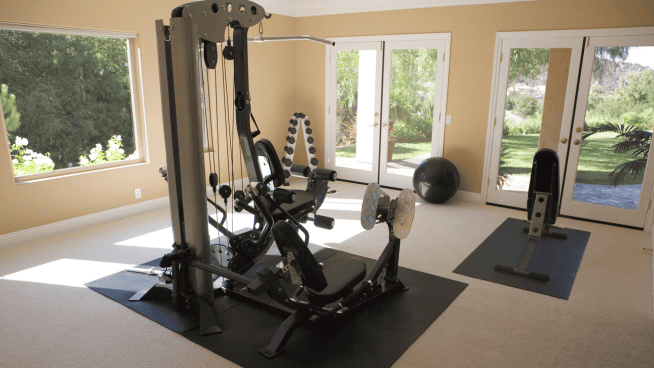How To Schedule Your Triathlon Training The Right Way
![]()
It is said of war that no battle plan survives first contact with the enemy, and that is just as true when it comes to scheduling a triathlon training season. No matter what schedules you devise for the upcoming weeks or months, something unexpected will spoil your best-laid plans.
RELATED: 5 Tips to Avoid Rookie Mistakes at Your First Triathlon
Nevertheless, it pays to have a training plan to ensure consistency and prepare you to race in several triathlons over the season. Here are some key scheduling tips to ensure that you will be ready to race, bike and swim for the next few months.
1. Set One Goal
You might have many goals when preparing for a triathlon: win every race, improve your times, beat a fellow competitor, or accomplish something else that shows you have improved.
Warren Buffett wisely advocates is that you should list 25 things you want to accomplish. Then select the five things you want to accomplish the most and completely ignore the other 20.
RELATED: Train Like a Pro: Beginner Triathlon Training Program
For a triathlon, even five goals can be excessive. Focus on one race, one time or one accomplishment. Any schedule you make should lead up to that.
2. Start with Light Races to Knock Off the Rust
It is currently spring. And though hopefully you have done some work to keep yourself in shape over the winter, it will probably take weeks of training until you are in peak condition for a triathlon.
So instead, start your triathlon season with an easier race where the terrain will be not be taxing and the competition is at a lower level. Beginner race also have volunteers who can help you or direct you where to go if something goes wrong.
No matter where you live, there should almost always be a local, beginner’s triathlon nearby. These events are a good way for you to knock off the rust and prepare for tougher, more challenging events.
3. Take a Mid-Season Break
These days, we see more professional, full-time racers taking a mid-season break for a week or two. It may seem tempting to push yourself to your limit, but a break will do a lot of good to recover your mind and body for future races. Triathletes who do not take breaks often talk of burnout, noting how constant training puts a strain on their family, social bonds and career.
RELATED: Off-Season Triathlon Training Tips and Workout Program
A mid-season break should occur after you have knocked the rust off, trained for some time and completed one or two serious races. Try to remain active with physical activities that are less strenuous than running, biking and swimming. Hiking is an excellent example.
Above all, use the break to catch up with the people you love, and to ensure that you are fully recovered and rested for the next part of your training regimen. While you will probably take a step back after the time off, but it should not be much, and your mind will be ready to go for the next few weeks.
4. Be Flexible
Events will always get in the way of your training. Maybe there will be an unexpected crisis at work, or you fall suddenly ill.
You will certainly want to stick to your schedule as much as possible, but it’s not the end of the world if you lapse now and then. Do not feel stressed out or angry when something takes a bite out of your training schedule. Anger will not help you in your training, and it can lead to further stress, which may harm your training.
A schedule is just a schedule. It is not a law, and your family and career should take priority over your triathlon training. Understand the importance of flexibility in your training, and you will be prepared for sudden surprises and whatever happens next.
The triathlon season is a tough, arduous affair. Advance preparation is absolutely necessary if you want to reach the top and compete with the best.
But it is not all about breaking limits day after day. A wise athlete knows when it’s time to rest and how to prepare for sudden surprises. Only then can you actually reach the top while ensuring that your family and social life and career remain healthy.
[cf]skyword_tracking_tag[/cf]RECOMMENDED FOR YOU
MOST POPULAR
How To Schedule Your Triathlon Training The Right Way
![]()
It is said of war that no battle plan survives first contact with the enemy, and that is just as true when it comes to scheduling a triathlon training season. No matter what schedules you devise for the upcoming weeks or months, something unexpected will spoil your best-laid plans.
RELATED: 5 Tips to Avoid Rookie Mistakes at Your First Triathlon
Nevertheless, it pays to have a training plan to ensure consistency and prepare you to race in several triathlons over the season. Here are some key scheduling tips to ensure that you will be ready to race, bike and swim for the next few months.
1. Set One Goal
You might have many goals when preparing for a triathlon: win every race, improve your times, beat a fellow competitor, or accomplish something else that shows you have improved.
Warren Buffett wisely advocates is that you should list 25 things you want to accomplish. Then select the five things you want to accomplish the most and completely ignore the other 20.
RELATED: Train Like a Pro: Beginner Triathlon Training Program
For a triathlon, even five goals can be excessive. Focus on one race, one time or one accomplishment. Any schedule you make should lead up to that.
2. Start with Light Races to Knock Off the Rust
It is currently spring. And though hopefully you have done some work to keep yourself in shape over the winter, it will probably take weeks of training until you are in peak condition for a triathlon.
So instead, start your triathlon season with an easier race where the terrain will be not be taxing and the competition is at a lower level. Beginner race also have volunteers who can help you or direct you where to go if something goes wrong.
No matter where you live, there should almost always be a local, beginner’s triathlon nearby. These events are a good way for you to knock off the rust and prepare for tougher, more challenging events.
3. Take a Mid-Season Break
These days, we see more professional, full-time racers taking a mid-season break for a week or two. It may seem tempting to push yourself to your limit, but a break will do a lot of good to recover your mind and body for future races. Triathletes who do not take breaks often talk of burnout, noting how constant training puts a strain on their family, social bonds and career.
RELATED: Off-Season Triathlon Training Tips and Workout Program
A mid-season break should occur after you have knocked the rust off, trained for some time and completed one or two serious races. Try to remain active with physical activities that are less strenuous than running, biking and swimming. Hiking is an excellent example.
Above all, use the break to catch up with the people you love, and to ensure that you are fully recovered and rested for the next part of your training regimen. While you will probably take a step back after the time off, but it should not be much, and your mind will be ready to go for the next few weeks.
4. Be Flexible
Events will always get in the way of your training. Maybe there will be an unexpected crisis at work, or you fall suddenly ill.
You will certainly want to stick to your schedule as much as possible, but it’s not the end of the world if you lapse now and then. Do not feel stressed out or angry when something takes a bite out of your training schedule. Anger will not help you in your training, and it can lead to further stress, which may harm your training.
A schedule is just a schedule. It is not a law, and your family and career should take priority over your triathlon training. Understand the importance of flexibility in your training, and you will be prepared for sudden surprises and whatever happens next.
The triathlon season is a tough, arduous affair. Advance preparation is absolutely necessary if you want to reach the top and compete with the best.
But it is not all about breaking limits day after day. A wise athlete knows when it’s time to rest and how to prepare for sudden surprises. Only then can you actually reach the top while ensuring that your family and social life and career remain healthy.
[cf]skyword_tracking_tag[/cf]









